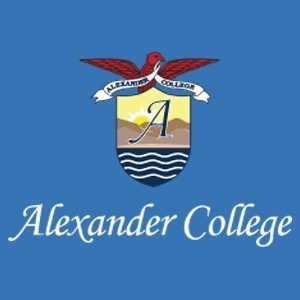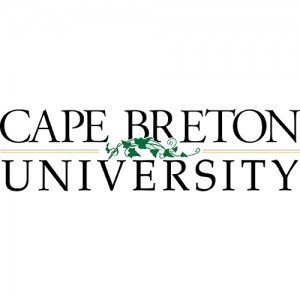Photos of university / #mcgillu
Mining Engineering at McGill University provides students with a comprehensive education in the principles and practices of extracting minerals and natural resources efficiently, safely, and sustainably. The program combines rigorous coursework, practical laboratory and field experiences, and cutting-edge research opportunities to prepare graduates for a variety of roles within the mining industry. Students will gain in-depth knowledge in areas such as ore deposit geology, mine design, mineral processing, rock mechanics, environmental management, and safety protocols. The curriculum emphasizes the development of technical skills alongside critical thinking, problem-solving, and leadership abilities essential for addressing the complex challenges faced by modern mining operations. Throughout the program, students have access to advanced laboratories, specialized equipment, and collaboration with industry partners, enabling them to apply theoretical knowledge in real-world settings. The department also offers opportunities for internships, co-op placements, and participation in research projects, providing valuable industry exposure and networking opportunities. Graduates of the Mining Engineering program at McGill are well-equipped to pursue careers in mineral exploration, mine planning and operations, environmental consultancy, and innovation in sustainable mining practices. The program aims to foster responsible mining professionals committed to environmental stewardship, social responsibility, and technological advancement. With a strong foundation in both engineering principles and earth sciences, students are prepared to contribute to the development of the global mining sector and to address the evolving needs of society for mineral resources in an ethical and environmentally conscious manner.
The Bachelor of Engineering in Mining Engineering at McGill University provides students with a comprehensive education that prepares them for a dynamic and evolving industry. The program combines rigorous theoretical coursework with practical applications to equip graduates with the technical expertise, problem-solving skills, and professional competencies necessary to excel in the field of mining. Students will engage in foundational studies in geology, mineral processing, and earth sciences, as well as advanced courses in mining methods, mineral resource extraction, and mine safety. The curriculum emphasizes sustainable and responsible mining practices, ensuring that future engineers are equipped to address environmental and social challenges associated with resource development.
Throughout the program, students have opportunities for hands-on experience through laboratory work, field studies, and internships. The program also encourages the development of leadership, teamwork, and communication skills vital for managing complex projects and collaborating with multidisciplinary teams. The integration of cutting-edge technology and innovative practices such as automation, digitalization, and environmental monitoring is a key component of the pedagogy. McGill University’s strong ties with industry partners provide students with networking opportunities, industry exposure, and pathways to employment upon graduation.
Graduates of the Mining Engineering program are prepared for careers in various sectors including mineral exploration, extraction, processing, environmental management, and consulting. They can pursue roles within mining companies, government agencies, or specialized consulting firms. The program also provides a solid foundation for those interested in advanced studies or research in mineral science and engineering. With a commitment to promoting sustainable development and technological innovation, the McGill Mining Engineering program aims to produce industry leaders capable of shaping the future of resource extraction responsibly and efficiently.
The undergraduate program in Mining Engineering at McGill University requires students to complete a comprehensive curriculum designed to provide foundational knowledge and practical skills in the field. Admission prerequisites typically include a strong academic record in relevant subjects such as mathematics, physics, and chemistry. Prospective students must fulfill language proficiency requirements, often demonstrated through standardized tests like TOEFL or IELTS, if applicable.
The program is structured into foundational courses during the initial years, covering topics such as geology, materials science, and introductory engineering principles. Students then advance to specialized courses focusing on mineral exploration, mine design, rock mechanics, ventilation, and mineral processing. Laboratory work and field studies are integral components, offering hands-on experience in sampling, exploration techniques, and safety procedures, ensuring students gain real-world understanding of mining operations.
To fulfill graduation requirements, students typically must complete a set number of credits, with a portion dedicated to engineering design projects and interdisciplinary courses. A capstone project or thesis is often required in the final year, allowing students to apply their learned skills to solve practical problems in mining engineering. In addition to coursework, students are encouraged or required to participate in co-operative education programs or internships, providing industry exposure and practical experience.
The program emphasizes sustainability, safety, and environmental responsibility, reflecting McGill’s commitment to responsible mining practices. Furthermore, students are expected to develop strong analytical, problem-solving, and communication skills, preparing them for professional roles in mining companies, consulting firms, or research institutions. Graduates are awarded a Bachelor of Science degree in Mining Engineering upon successful completion of all academic and practical requirements, equipping them with the knowledge necessary for licensing or further studies in specialized areas of mining and mineral engineering.
The Mining Engineering program at McGill University offers various financing options to support students throughout their studies. Undergraduate students are encouraged to explore multiple sources of financial aid, including scholarships, bursaries, and loans. McGill University provides a range of entrance scholarships based on academic merit, which can significantly reduce the financial burden for incoming students. Additionally, current students can apply for faculty-specific awards, departmental bursaries, and external scholarships sponsored by industry partners and government agencies.
For international students, financial support is also available through various financial aid programs, although they may have different requirements and eligibility criteria. Students are advised to consult the McGill Financial Aid Office for detailed information on available funding, application procedures, and deadlines. The university also offers work-study programs that allow students to gain practical experience while earning income to help cover educational expenses.
In addition to university-based financial resources, students may consider external financing options such as government student loans, private loans, and sponsorships from mining companies or industry associations. It is recommended that students proactively research and apply early to maximize their chances of receiving financial assistance.
Overall, McGill University strives to make education accessible and affordable by providing comprehensive financial support services, guidance on available funding opportunities, and resources to help students plan their financial future. By taking advantage of these programs and resources, Mining Engineering students can focus more on their academic and professional development, knowing they have support to manage the costs associated with their studies at McGill University.
The Bachelor of Engineering (BEng) in Mining Engineering at McGill University is a comprehensive undergraduate program designed to prepare students for careers in the mining industry, resource extraction, and related fields. The curriculum combines fundamental engineering principles with specialized courses focusing on mineral exploration, mining methods, mineral processing, and environmental considerations associated with mining operations. Students gain a solid foundation in mathematics, physics, chemistry, and engineering sciences, which are complemented by courses in geology, rock mechanics, mining design, and safety management. The program emphasizes practical skills through laboratory work, field studies, and projects that simulate real-world mining challenges. McGill's state-of-the-art facilities and partnerships with industry leaders provide students with valuable hands-on experience and networking opportunities. Additionally, the program addresses critical issues such as sustainable mining practices, environmental impact mitigation, and social responsibility, preparing graduates to operate ethically and effectively within the industry. Graduates are equipped with the technical knowledge, problem-solving skills, and professional competencies necessary for employment in mining companies, consulting firms, and governmental agencies. The program also offers pathways for further studies, including master's and doctoral levels, to deepen expertise and engage in research. Overall, McGill’s Mining Engineering program is recognized for its rigorous academic standards, experienced faculty, and its commitment to producing industry-ready graduates capable of contributing to the responsible development of mineral resources worldwide.





